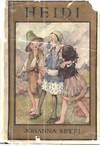
GOOD FOR A LOAF OF BREAD, A GAME OF POOL, A HALF-PINT OF CREAM, OR A ROLL IN THE HAY
by From the Estate of Robert (Bobby) Palazzo, Westlake Village, California
- Used
- Condition
- Good to Very Good
- Seller
-
Virginia Beach, Virginia, United States
Payment Methods Accepted
About This Item
Collection of forty-eight western tokens plus other exonumia composed mostly of merchant "good for" tokens, several Pony Express commemorative 'so-called-dollars', a tool-check, and a 'dog house' license. These were issued at various locales, mostly in Nevada with a couple from California. The tokens were identified by Palazzo, John Schilling, or Holabird Auctions. Palazzo's old and badly worn cardboard mounts have been replaced with new Lighthouse coin 'flips' and the original information has been transferred. Mixed condition; some near mint and others well-worn (as is common with many tokens). One of the images at the link displays a list of all the tokens which will also be provided in hard copy.
Trade tokens were a form of unofficial 'minor coinage' made from base metals such as brass, copper, nickel, or aluminum and usually cast as circular disks, but occasionally as octagons, triangles, or in scalloped shapes. They seldom, if ever, had a value of more than a dollar. Trade tokens (sometimes referred to as "Good Fors" because they were usually stamped "Good for" followed by a product, service, or monetary value) first appeared in the United States during the late 1700s, and it's been suggested that George Washington used a trade token to attend Bill Rickett's Philadelphia Circus in 1793.
Often, like some of the tokens in this lot, they were issued to be exchanged for a specific product or service such as a loaf of bread, game of pool, meal, hotel room, or brothel visit. In the western states, company stores and independent businesses made frequent use of tokens in mining towns and camps where coinage was often scarce. As an added incentive for businesses, they could only be redeemed at the place of issue, and with little, if any, law enforcement, they were a safe substitute for gold and silver. Also, if the tokens were never redeemed, business owners pocketed a little extra profit.
The towns and cities represented in this collection include Aztec, Blair, Carson City, Crystal, Duckwater, East Ely, Elko, Fairview, Goldfield, Los Angeles, McGill, Mound Hill, Reno, Tonopah, Tuscarora, and Winnemucca. Today, some of these places are ghost towns.
The lot includes tokens distributed by the American Borax Company, general stores, drug stores, tobacco stores, billiard parlors, hotels, and saloon/brothels.
The most interesting tokens in this lot are
Two different tokens from Goldfield, Nevada's most famous saloon, The Northern.
One of these tokens was originally bimetallic with an aluminum ring around a copper or brass disc. The disc is missing on this token just as it is on almost all the others that have survived.
Tex Rickard and his silent partners, Wyatt and Virgil Earp, opened The Northern in 1905, and Wyatt briefly managed the establishment during its first year of operation. In time, Rickard became a very successful fight promoter; he promoted the championship fight between James J. Jeffries and Jack Johnson. He later used his fortune to build the third iteration of Madison Square Garden--which lasted from 1925 to 1968. During his Garden's second year of operation, Rickard formed a professional hockey team to play there, Tex's Rangers, known today as the New York Rangers.
A 12½ cent token for the Red Top Bar, one of Goldfield's notorious brothels.
Two 5-cent tokens from the Jeffries & Kipper Billiard Parlor and Gentlemen's Café in Los Angeles which the two men opened in partnership in 1907. Kipper was a frustrated boxer who eventually became the manager of the Los Angeles Coliseum. Jeffries was the legendary Heavy Weight Champion, James J. Jeffries, who was lured back into the ring for a $1 million payday (in today's dollars) six years and an additional 110 pounds after he retired as the "Great White Hope" to fight the then-current champion, Jack Johnson.
(For additional information about trade tokens, see Rulau's Standard Catalog of United States Trade Tokens 1700 to 1900, Ascarza's "Mine Tales: Trade tokens were used widely, but are rare today" in the 9 Dec 2013 issue of the Arizona Daily Star, and "John Bill Ricketts and the Ricketts Circus" at Circuses and Sideshows, online.)
A fascinating physical record of commerce in the boomtowns of the American West. Recent auction results found at Worthpoint suggest the total value of this lot to be just under $1,600.
Reviews
(Log in or Create an Account first!)
Details
- Bookseller
- Kurt A. Sanftleben, LLC
(US)
- Bookseller's Inventory #
- 009672
- Title
- GOOD FOR A LOAF OF BREAD, A GAME OF POOL, A HALF-PINT OF CREAM, OR A ROLL IN THE HAY
- Author
- From the Estate of Robert (Bobby) Palazzo, Westlake Village, California
- Book Condition
- Used - Good to Very Good
- Quantity Available
- 1
- Place of Publication
- Most from Nevada mining towns
- Date Published
- 1900-1910
- Weight
- 0.00 lbs
- Bookseller catalogs
- History;
- Vbf_category
- 10101
Terms of Sale
Kurt A. Sanftleben, LLC
Sales tax of 6% required for books shipped to addresses in Virginia. Standard domestic shipping is free, however additional fees may be required for heavy, oversized, or unusually-shaped items.
Returns accepted for any reason for a full refund (less shipping) if we receive the return within 14 days of shipment and items are received in the same condition as sent. Advance notice of any return would be appreciated.
About the Seller
Kurt A. Sanftleben, LLC
About Kurt A. Sanftleben, LLC
We also have a nice selection of unusual ephemera and postal history items in stock as well.
Member: Antiquarian Booksellers Association of America, Ephemera Society, Manuscript Society, American Stamp Dealers Association, American Philatelic Society, U.S. Philatelic Classics Society, Military Postal History Society







